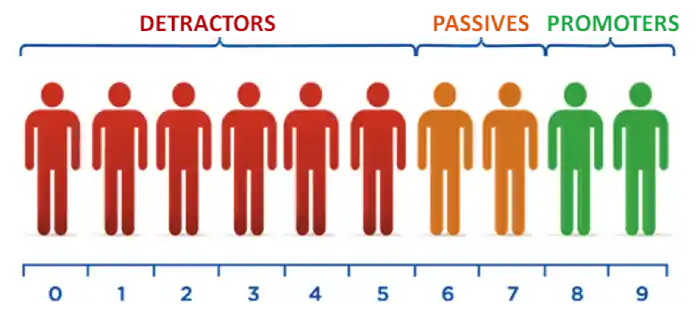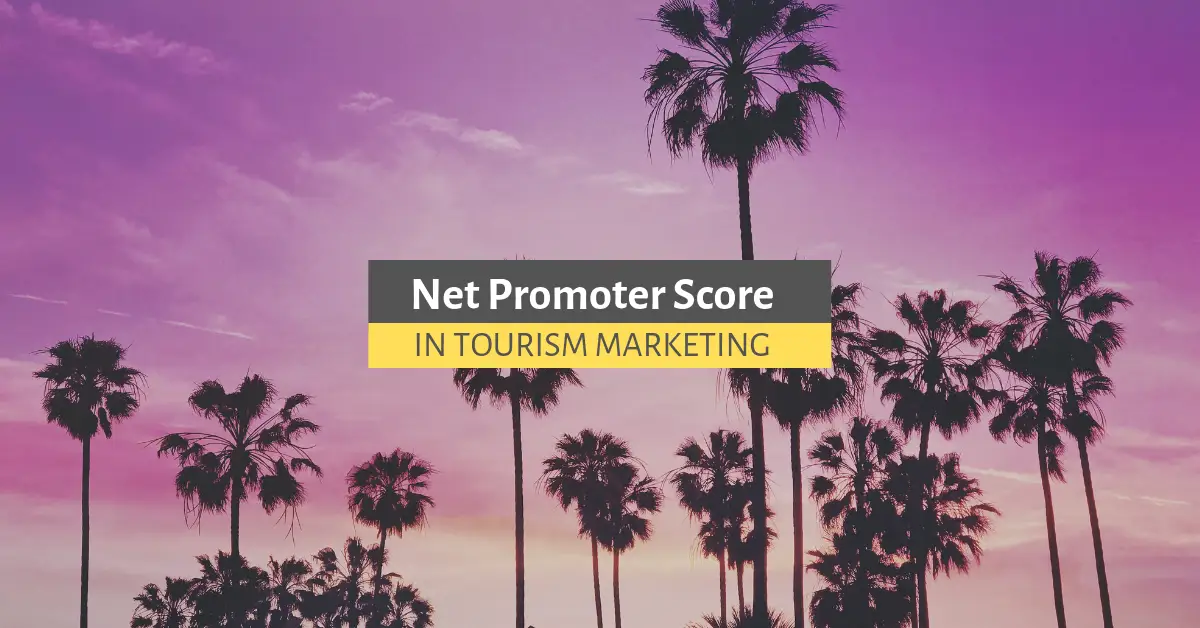Net Promoter Score in tourism is a simple indicator of guests’ contentment and it is obtained by asking only one question.
Professional hotels aim to get feedback from their guests about their contentment with the stay in a hotel. However, they do this by using questionnaires with dozens of questions, which can be tiresome for tourists.
Net Promoter Score in tourism is a simple indicator of guests’ contentment by asking only one question.
NPS is based on emotions and a tourist’s personal experience and is obtained by a guest’s answer to the following question: “Would you recommend this hotel (an agency, a guide,…) to a friend or a colleague?” by rating it from 1 to 10.
How does it work?
Simply, ask your guests to answer the following question upon their departure: “Would you recommend this hotel to a friend or a colleague?” by giving a rating from 1 to 10. Depending on the kind of response, guests are being classified as promoters, passive ones or as detractors.

If a guest rated the hotel from 0 to 6, he will be classified as a critic. He is not satisfied with the services in your hotel, and he may possibly spread bad news about the hotel. He will spread his dissatisfaction further on the others and making damage to a hotel’s reputation.
If the answer is 7 or 8, according to the NPS-u, this is a passive person. He is relatively satisfied with the quality of the service, but not enough to recommend it; or, he would recommend it to a friend by using the words: ‘That hotel is OK, you can go there’. But not by saying ‘It’s phenomenal there, don’t even try to go to some other hotel, you won’t regret it!’
However, if he rated a hotel from 9 or 10, then we classify him as a promoter. These are people who are impressed with their stay and service provided by a hotel. They potentially can be a hotel’s ambassadors, they will recommend it sincerely, and there is no better marketing than that.
Ok, so how to use NPS?
Thanks to one question, you will know to what extent each guest is satisfied with your service.
Now comes the further interaction with these guests, but again, it depends on their response, and most frequently, continues via e-mail, and that is why is very important to get an email address from your guests.
Imagine you don’t have these ratings and you want to send a message to the guests who left recently and ask them how their stay in your hotel was? You would have to send the same message to everyone. However, thanks to NPS-u, you can send to each guest a more personalized message, depending on their experience and impressions.
Create buckets
Create three buckets – detractors, passives, and promoters, and customize the message and tone of communication for each group.
In this way, you can send the message to the critics in which you should say that you feel sorry for their dissatisfaction with the services provided during their stay in your hotel, and then ask them to give you their detailed impressions regarding the hotel and the causes for dissatisfaction.
Try to solve the problem and reconcile with the guest. This is how you can show that you really care for your guests and, more importantly, maybe you will succeed in avoiding the possible negative comment on TripAdvisor.
The passive ones are probably just one step closer to becoming the promoters. Take advantage of further communication so as to find out what was missing and they didn’t give you the highest rating. Surprise them the next time when they come, or send them some gift, a discount, a surprise…
Promoters are your ambassadors, your fans. Take advantage of that! Ask them to write a review on TripAdvisor and to like your Facebook page. Maybe liking of Facebook seems insignificant, but there is a great possibility that they will often share your posts, in the most sincere way, which is the best marketing and you get it for free.
However, the significance of NPS is not only in the process of message writing to the guests. You will be able to follow the trends. For instance, you can follow how NPS changes together with the changes you are making in the hotel itself (renovated bathrooms, new staff, changes in a restaurant…).
Do you use something similar in your hotel or tour agency? Will you try using NPS?

